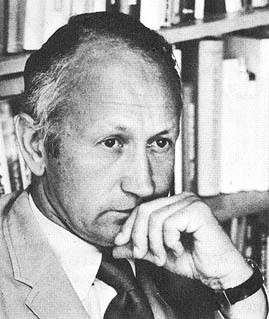
“The heroes of the world community are not those who withdraw when difficulties ensue, not those who can envision neither the prospect of success nor the consequence of failure -- but those who stand the heat of battle, the fight for world peace through the United Nations.”
Share this quote:
“May the United Nations ever be vigilant and potent to defeat the swallowing up of any nation, at any time, by any means-by armies with banners, by force or by fraud, by tricks or by midnight treachery.”
Share this quote:
“The United Nations is designed to make possible lasting freedom and independence for all its members”
Share this quote:
“From this vision of the role of the United Nations in the next century flow three key priorities for the future: eradicating poverty, preventing conflict and promoting democracy.”
Share this quote:
“More than ever before in human history, we share a common destiny. We can master it only if we face it together. And that, my friends, is why we have the United Nations.”
Share this quote:
“If our colleges and universities do not breed men who riot, who rebel, who attack life with all the youthful vim and vigor, then there is something wrong with our colleges. The more riots that come on college campuses, the better world for tomorrow.”
Share this quote:
“The exquisite art of idleness, one of the most important things that any University can teach.”
Share this quote:
“Optimism is the cheerful frame of mind that enables a teakettle to sing, though in hot water up to its nose.”
Share this quote:
“Cultivate optimism by committing yourself to a cause, a plan or a value system. Youll feel that you are growing in a meaningful direction which will help you rise above day-to-day setbacks.”
Share this quote:
Death is not the greatest loss in life. The greatest loss is what dies inside us while we live.
Share this quote:
Life is an adventure in forgiveness
Share this quote:
The way a book is read- which is to say,the qualities a reader brings to a book- can have as much to do with its worth as anything the author puts into it.
Share this quote:
History is a vast early warning system.
Share this quote:
If ignorance about the nature of pain is widespread, ignorance about the way pain-killing drugs is even more so. What is not generally understood is that many of the vaunted pain-killing drugs conceal the pain without correcting the underlying condition. They deaden the mechanism in the body that alerts the brain to the fact that something may be wrong. The body can pay a high price for suppression of pain without regard to its basic cause.
Share this quote:
Illness is always an interaction between [mind and body]. It can begin in the mind and affect the body, or it can begin in the body and affect the mind, both of which are served by the same bloodstream. Attempts to treat most mental diseases as though they were completely free of physical causes and attempts to treat most bodily diseases as though the mind were in no way involved must be considered archaic in the light of new evidence about the way the human body functions.
Share this quote:
Suppose I stopped taking aspirin and phenylbutazone? What about the pain? The bones in my spine and practically every joint in my body felt as though I had been run over by a truck. I knew that pain could be affected by attitudes. Most people become panicky about almost any pain. On all sides they have been so bombarded with advertisements about pain that they take this or that analgesic at the slightest sign of an ache. We are largely illiterate about pain and so are seldom able to deal with it rationally. Pain is part of the bodys magic. It is the way the body transmits a sign to the body that something is wrong.
Share this quote:
Time is the one thing that patients need most from their doctors--time to be heard, time to have things explained, time to reassured, time to be introduced by the doctor personally to specialists or other attendants whose very existence seems to reflect something new and threatening. yet the one thing that too many doctors find most difficult to command or manage is time.
Share this quote:
People who develop the habit of thinking of themselves as world citizens are fulfilling the first requirement of sanity in our time.
Share this quote:
The individual is capable of both great compassion and great indifference. He has it withing his means to nourish the former and outgrow the latter.
Share this quote:
Not every illness can be overcome. But many people allow illness to disfigure their lives more than it should. They cave in needlessly. They ignore and weaken whatever powers they have for standing erect. There is always a margin within which life can be lived with meaning and even with a certain measure of joy, despite illness.
Share this quote: